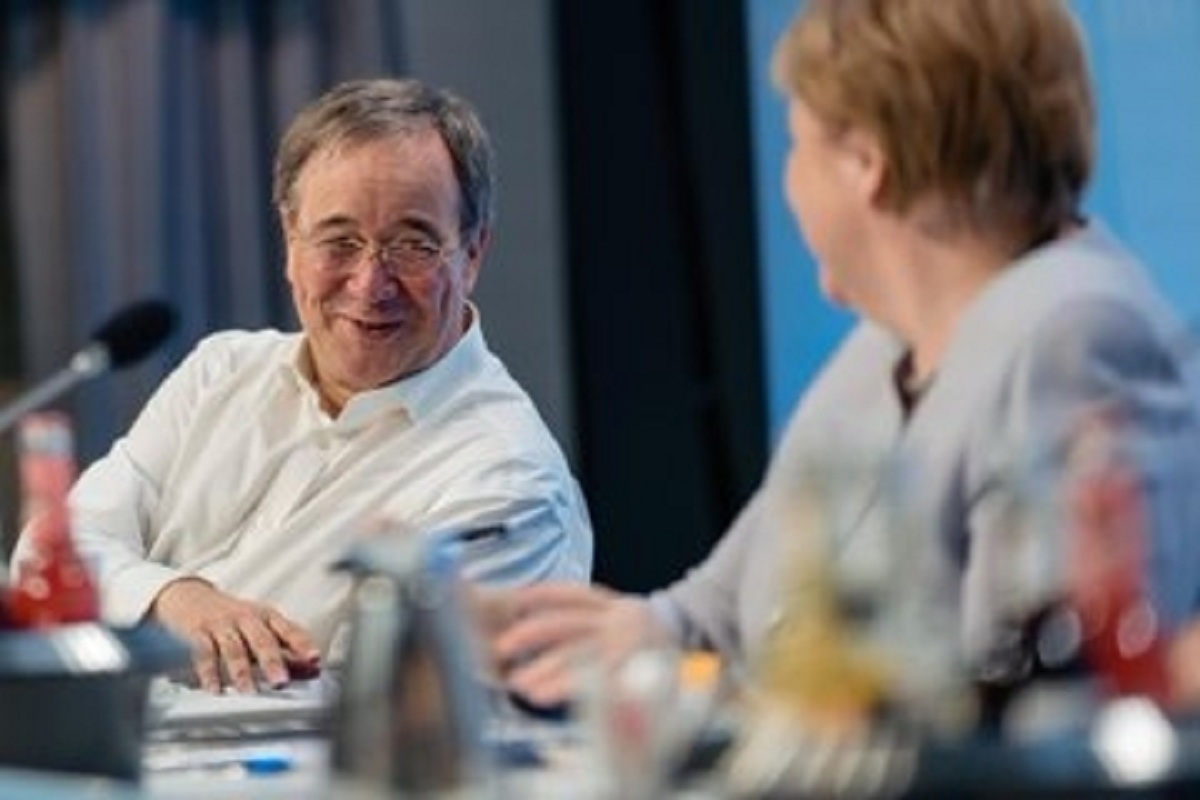India pips countries like Germany, Britain in GDP (PPP) gains: Report
GDP (PPP) means gross domestic product based on purchasing power parity.
The Christian Democrat Helmut Kohl (1982-1998) was mocked by the German left as a provincial wannabe but the wily powerbroker became a towering figure of European, even world, politics, presiding over German reunification, deepening and enlarging of the European Union, and the introduction of the Euro.

German chancellor candidate Armin Laschet of the Christian Democratic Union party.(https://twitter.com/ArminLaschet)
Germany votes in national elections in the next two months but the three leading candidates in the fray to replace Chancellor Angela Merkel seem unable to inspire any enthusiasm among the electorate of Europe’s economic powerhouse.
In the latest opinion poll asking citizens who should be their next leader, 45 per cent of Germans chose “none of the above.” Perhaps, as some point out, neither of the three contenders this time around ~ the Christian Democrat (CDU) Armin Laschet, the Social Democrat (SPD) Olaf Scholz, and the Greens’ Annalena Baerbock ~ have a compelling, tractioninducing narrative which is so essential for political and electoral success in contemporary democracies.
None of them, for example, have had to endure the trials and tribulations of their predecessors; all eight previous Chancellors were tested by hardship before they gained the highest office in the land. Germany’s first chancellor, Konrad Adenauer (1949-1963), who demitted office at the grand old age 87, was imprisoned by the Third Reich but sought reconciliation with its victims and anchored Germany in the West.
Advertisement
Ludwig Erhard (1963-1966) adopted liberal market policies that enabled the postWorld War II economic miracle while the brief term of Kurt Georg Kiesinger (1966-1969) was overshadowed by rumours about a Nazi past.
His Social Democrat successor Willy Brandt (1969-1974), a refugee during the war, was revered by younger Germans for falling to his knees at the memorial to the Warsaw Ghetto, and for working towards a rapprochement with the Soviet Union.
The Social Democrat Helmut Schmidt (1974-1982) dealt with oil price shocks, domestic terrorists, a wavering US President Jimmy Carter, and the stationing of nuclear missiles in Europe. His policies divided the country but the man himself went on to become the co-publisher of a prominent weekly where he initiated major debates on national issues.
The Christian Democrat Helmut Kohl (1982-1998) was mocked by the German left as a provincial wannabe but the wily powerbroker became a towering figure of European, even world, politics, presiding over German reunification, deepening and enlarging of the European Union, and the introduction of the Euro.
His later years were, of course, tarnished by scandals over illegal party contributions. After him came the pugnacious Social Democrat Gerhard Schröder (1998-2005), the son of a cleaner whose husband never came back from the war and who grew up on welfare.
He led Germany’s first red-green coalition, sent troops to the Balkans and Afghanistan, and signed off on the labour market reforms which would turn Germany into Europe’s economic engine. He then ruined his reputation by joining the board of Gazprom immediately after leaving office.
The political journeys of Messrs Laschet, Scholz, and Baerbock are, in comparison, almost insipid. Perhaps that is a reflection of the times we live in. It remains to be seen if that turns out to be a curse or a blessing for Germany.
Advertisement